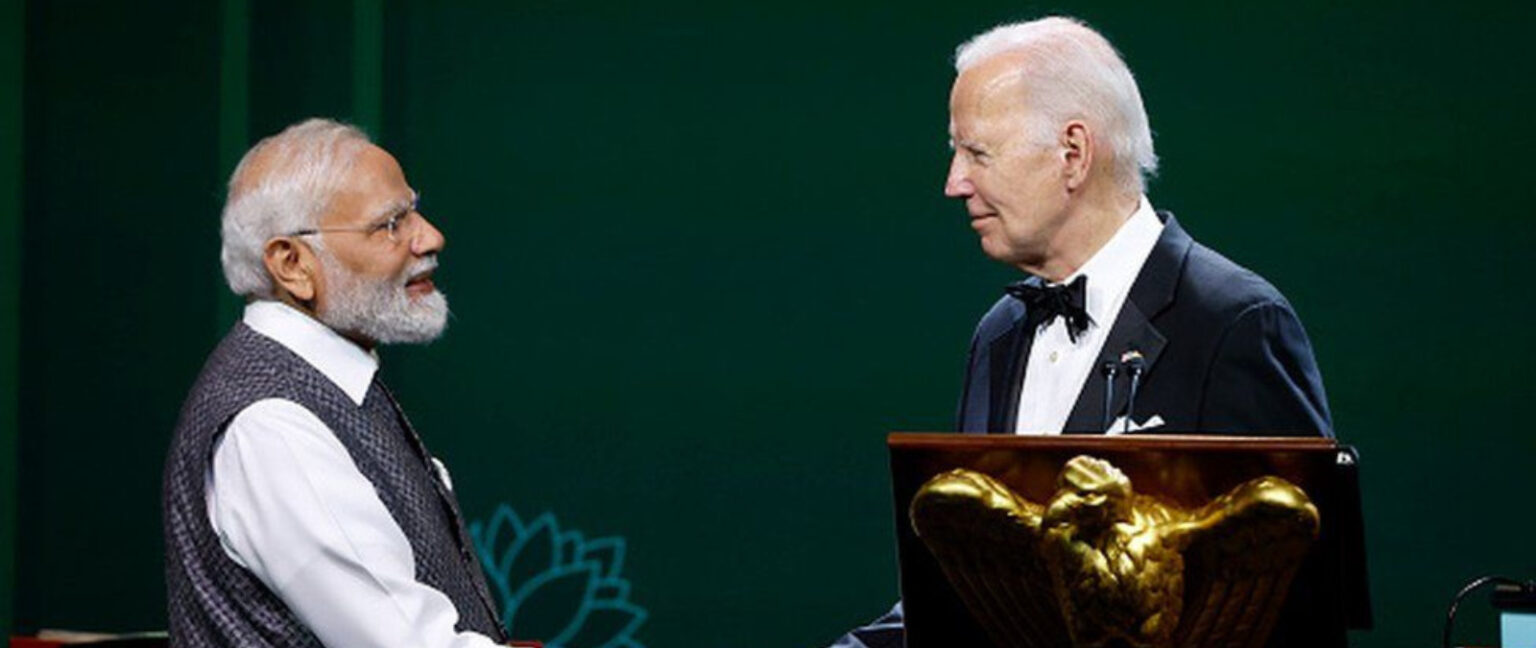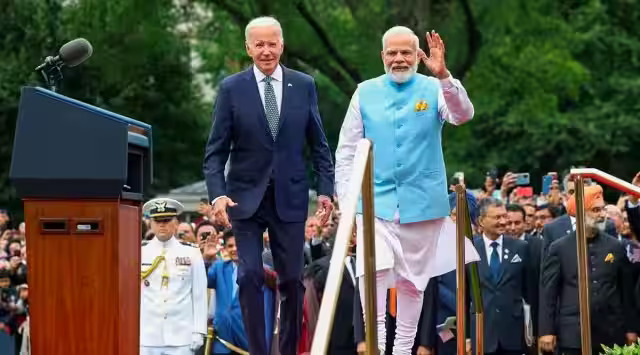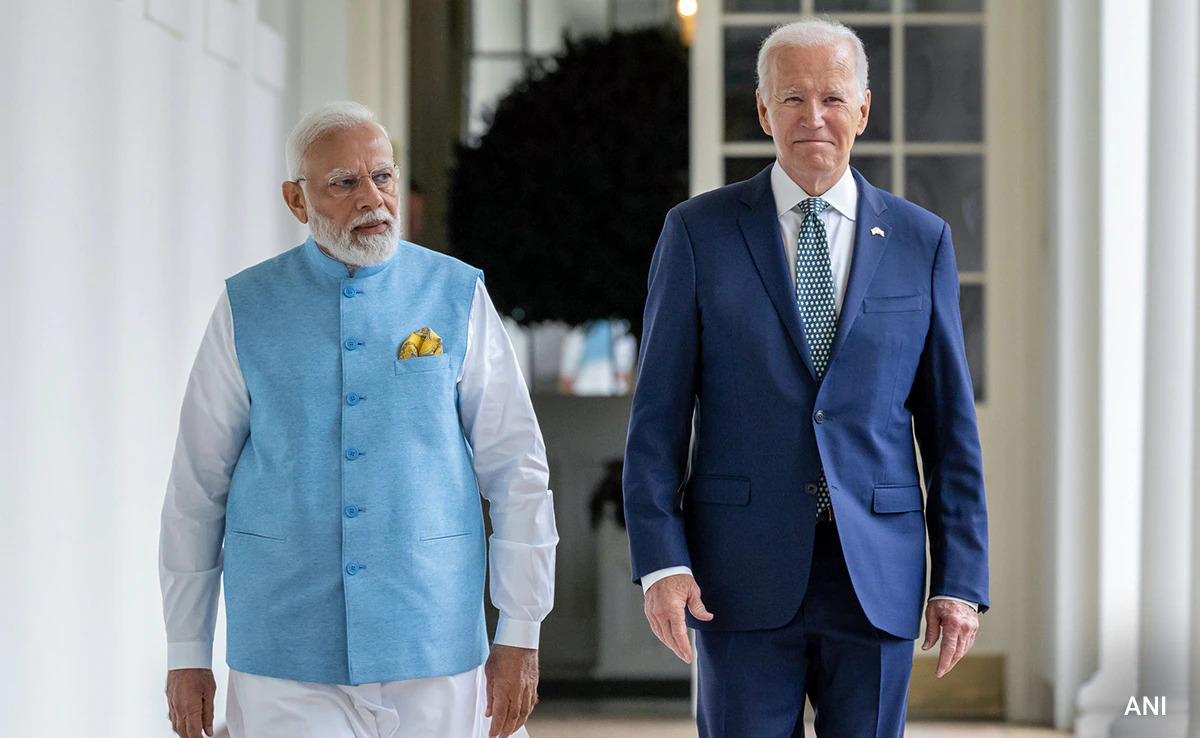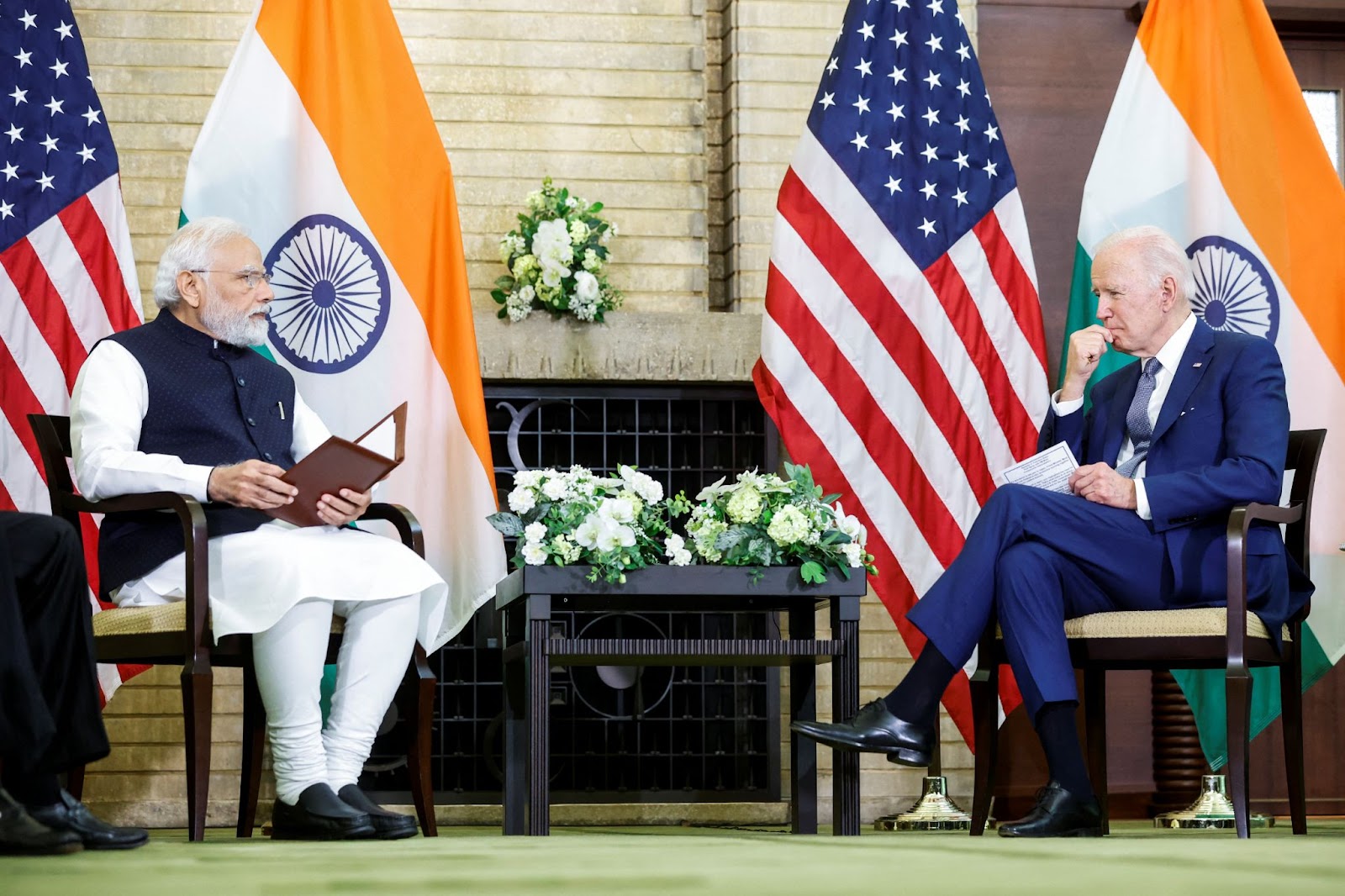Image source: The Indian Express
New Delhi and Washington are collaborating on a wide range of ambitious deliverables for their bilateral engagement as US President Joe Biden visits India for the G20 summit. These include a potential nuclear agreement on small modular nuclear reactors, an academic program tailored for Indian students, movement on the drone deal, progress on US Congress approval for a defense deal on jet engines, a joint humanitarian aid for Ukraine, a more lenient visa policy for Indians, and new consular facilities.
A “robust” and “outcome-oriented” joint communiqué for President Biden’s maiden visit to India as US President is the subject of frantic discussions, according to sources, between Indian and US officials over the past few weeks. Donald Trump visited India for the final time in February 2020.
Biden, who has traveled to India several times in different positions, wanted to make a trip that would advance the US-India relationship following Prime Minister Narendra Modi’s state visit to Washington, DC, in June.
Normal G20 summit protocol prohibits bilateral visits, but India has created an exception for the US President and the Saudi Crown Prince.
India-US nuclear agreement
Image source: ANI News
As a result of the civil nuclear liability statute, India and the US are attempting to resolve their disagreements regarding the nuclear agreement. The two countries also seek to reach an agreement or understanding to build small nuclear reactors, which are thought to be easier to construct than larger, more expensive reactors.
Both parties had reviewed the negotiations in June over the building of six nuclear reactors in India by the Nuclear Power Corporation of India Limited (NPCIL) and Westinghouse Electric Company (WEC). The development of next-generation compact modular reactor technologies, intended for both the domestic market and export to third nations, is currently the topic of intense discussion.
Following the signing of a contract between General Electric and Hindustan Aeronautics Limited for the production of GE F-414 jet engines in India for the Hindustan Aeronautics Limited Light Combat Aircraft Mk 2, the two parties are also working to expedite the GE jet engines deal that was agreed upon in the June visit. The two parties are seeking to hasten the conclusion of this transaction after the US Congress last week authorized the agreement that will allow for a higher level of transfer of US jet engine technology than ever.
Along with the GE jet engine agreement, the parties are also discussing a “Reciprocal Defense Procurement agreement” and a “Security of Supply arrangement”.
The two parties are debating a plan whereby General Atomics will also create a Comprehensive Global MRO facility after India announced its intentions to purchase General Atomics MQ-9B HALE UAVs, which are extremely potent drones. Additionally, a specific announcement is anticipated during the visit.
India, US stance on Ukraine
Image source: Reuters
Washington and New Delhi, which have disagreed in how harshly they have condemned the Russian invasion of Ukraine, are also thinking about providing Ukraine with combined assistance.
About 100 tons of humanitarian goods from India have already been provided, including food, blankets, tents, critical medicines, and medical equipment. The most recent shipment was given to Zaporizhzhia, where the nuclear plant is located, by the Indian ambassador in Kyiv last month.
While India has only supplied humanitarian supplies thus far while Washington has sent lethal weaponry, a coordinated humanitarian aid effort is being discussed as a message to Moscow. The proposal hasn’t been finished though.
India, US negotiate on education
In order to offer STEM courses for a one-year Master’s degree with a specialization in a particular industry, the two parties are also cooperating to announce academic programs designed for Indian students. The students will have the option to stay and work in the US for up to three years following the program.
A firm start date is also anticipated to be finalized and revealed during the US President’s visit. The two sides had already planned to conduct a pilot to judge domestic renewals of some petition-based temporary work visas later this year.
The H1-B visa holders from India will benefit greatly from this, and it is intended to extend this benefit to other visa categories as well.
Work on new US consulates in Bengaluru and Ahmedabad as well as an Indian consulate in Seattle for later this year will also begin between the two parties. Also anticipated is the announcement of two new consulates in the US.















